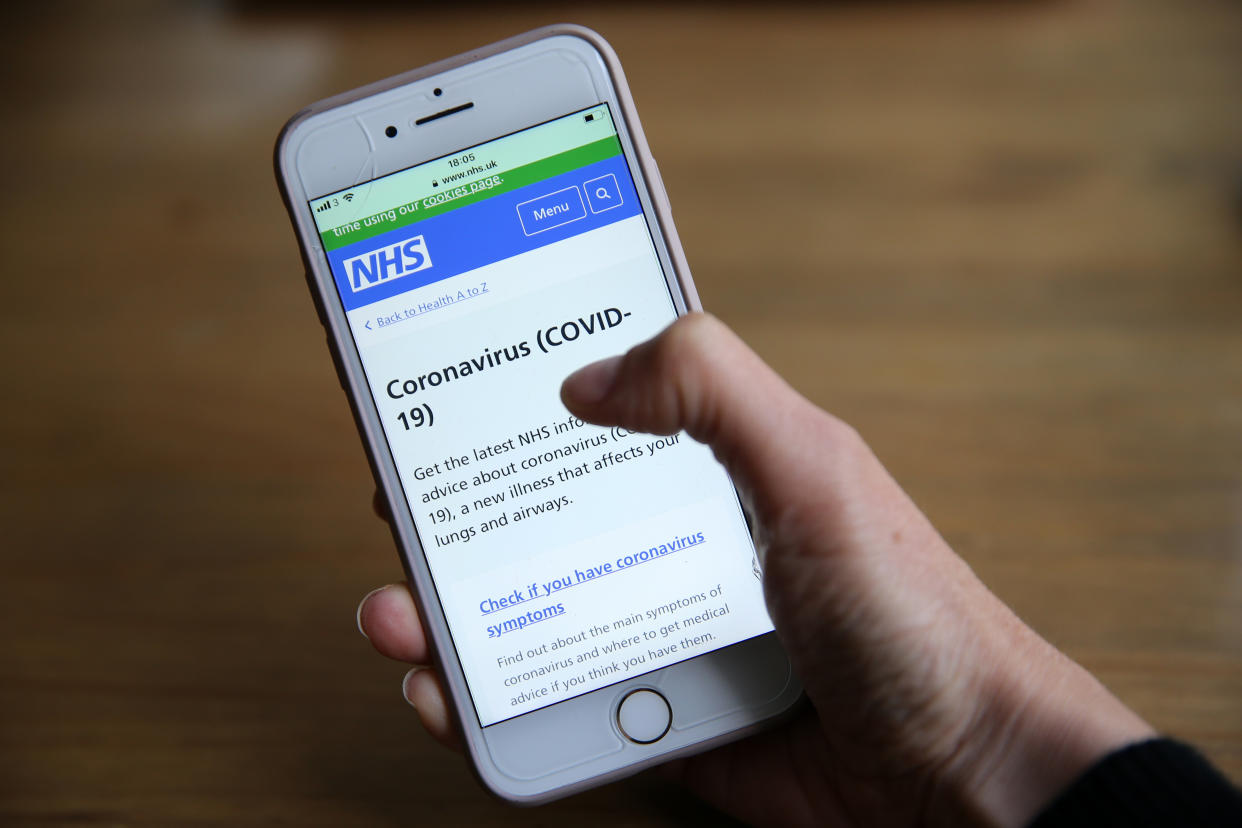Coronavirus: Epidemic can be controlled if 60% of population use NHS phone app, scientist says

The UK’s coronavirus epidemic can be brought under control if 60% of the population use the NHS’s contact tracing app.
That’s the view of leading diseases professor Christophe Fraser, who said it would be enough to keep the reproduction number – the amount of other people someone with COVID-19 can infect – below one.
The NHS is set to release a mobile phone app which alerts people who may have been exposed to the virus.
It believes it could be key to “helping the country return to normality and beating coronavirus”. It is set to be launched nationally next month, subject to performance in trials.
Latest coronavirus news, updates and advice
Live: Follow all the latest updates from the UK and around the world
Fact-checker: The number of COVID-19 cases in your local area
6 charts and maps that explain how COVID-19 is spreading
On Tuesday, Prof Christophe Fraser, a diseases leader from the University of Oxford’s Big Data Institute, told the science and technology committee: “Because we don’t know what the uptake of the app will be, in scenarios that are relatively pessimistic we found that if roughly 60% of the population use the app, it would be enough to bring the reproduction number below one and control the epidemic.”
However, he added that would be dependent on two key factors: people sharing data with the app when they experience coronavirus symptoms, rather than simply downloading it; and self-isolating when symptoms have developed.
Once installed, the app logs the distance between other phones that also have it downloaded.
If someone becomes unwell, they can inform the NHS via the app, which triggers anonymous alerts to other app users who have come into contact with that person in previous days.
NHSX – the NHS’s technological arm – is aiming for 80% usage of the app, though chief executive Matthew Gould admitted to the committee on Tuesday that this would be “tough”.
“The message needs to be: if you want to keep your family and yourselves safe, if you want to protect the NHS and stop it being overwhelmed and at the same time we want get the country back and get the economy moving, the app is going to be an essential part of the strategy for doing that.”
“To be blunt about it, the levels of download mentioned will be tough, it will require us to really get the message over that this is a core part of how we move forward.”
The UK’s lockdown will last until 7 May at the earliest, with the app seen as a key way of easing the government’s draconian restrictions.
Effective contact tracing has been a key reason why South Korea has managed to keep COVID-19 under control while not imposing a lockdown. It recorded just 14 new cases on Tuesday.
Gould added the NHS app is set to be trialled in a “small area” before its national rollout.
‘Apple and Facebook may push back on app’
Failing to follow Apple and Google’s framework for a coronavirus contact tracing app risks pushback from the tech giants, a cyber security expert has warned.
Apple and Google have joined forces to develop a contact tracing model in which the matching process happens between phones, rather than sending anonymised data to a computer server, as would be the case with the NHS app.
The companies are expected to release the first phase of their efforts soon.
Prof Alan Woodward, from the Surrey Centre for Cyber Security at the University of Surrey, warned that the UK approach could face some issues.
He told the PA news agency: “They [Apple and Google] know that their customer base is global. It’s not just the US or the UK or European, it’s all over the world, so they want their users to not think that governments can somehow subvert their operating systems to become trackers.
“So there is a bit of a danger it might get some pushback.”
Gould insisted on Tuesday that people can be “confident” their personal data will not be compromised.


